As shocking as it seems, it’s not uncommon in the United States to find types of food and ingredients that are outright banned in other countries. Certain food production practices that are outlawed elsewhere are also permitted in the US. While other nations enforce stricter regulations to protect public health, the US often takes a more lenient approach, allowing additives and practices that many experts deem questionable.
Meanwhile, healthcare spending (much of it on treating symptoms of chronic disease) is vastly higher in the US than in any other country on Earth. Yet, the US has significantly lower life expectancy than other similarly developed nations. Increasing levels of food allergies and behavioral disorders are also cause for concern. These conditions and diseases are often highly preventable by addressing diet and lifestyle. Could the difference in food safety standards be a factor in these troubling trends?
To understand why the US allows ingredients banned elsewhere, we’ll explore what makes these substances controversial, how they’ve been regulated abroad, and what this reveals about US food policies. By examining the ingredients banned abroad but still permitted in the US, we can better understand what might fuel America’s growing health crises — and what you can do to protect yourself and the people you care about.
How Countries Regulate Food Safety
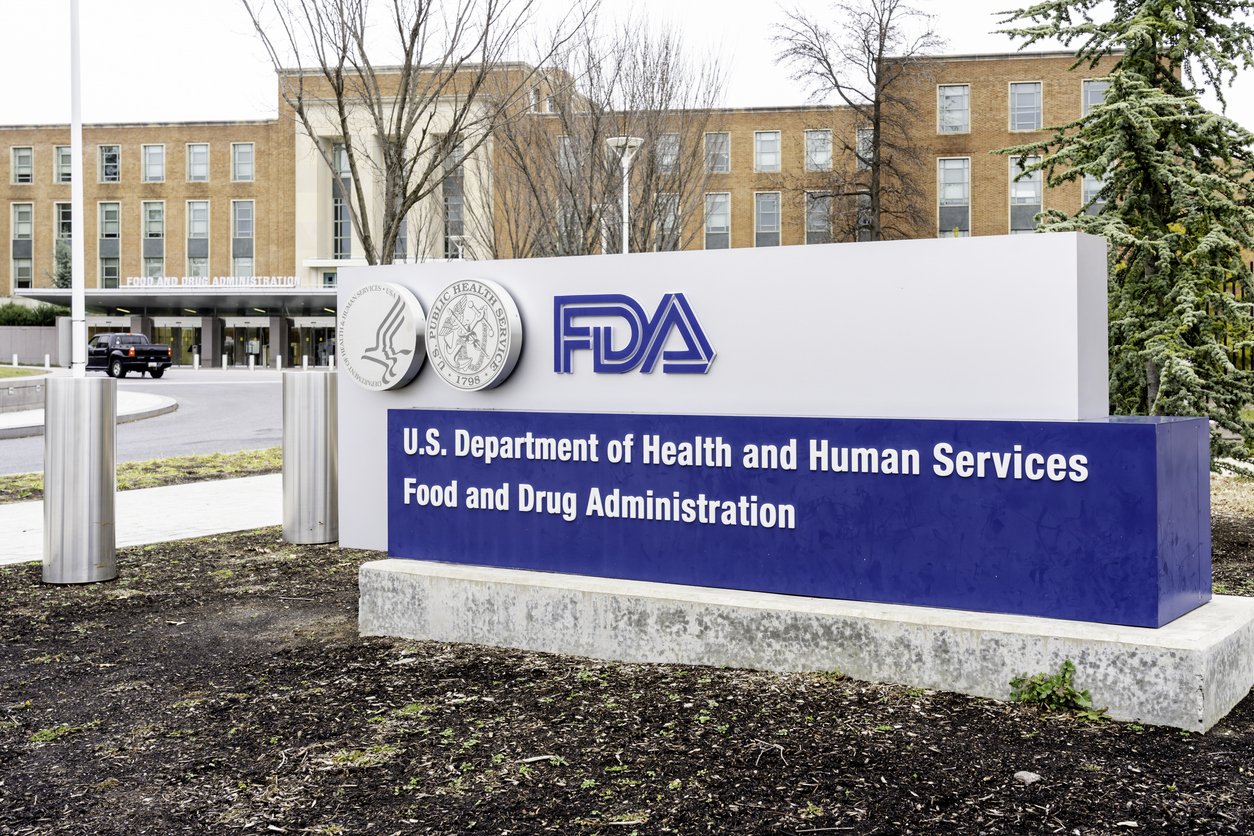
When it comes to food safety regulations, countries take diverse approaches that reflect their particular priorities, values, and governance systems.
The European Union (EU) operates under a “precautionary principle.” Essentially, it takes a proactive stance, implementing strict regulations on food and chemicals to safeguard public health even when scientific evidence about potential harm isn’t conclusive.
If there’s a hint of risk, the EU will likely ban or heavily restrict the ingredient or additive until its safety can be established. If they aren’t sure, it is better to err on the side of protecting people from potential harm.
Meanwhile, the Food and Drug Administration (FDA) in the United States follows a very different philosophy. It relies on regulatory impact analysis to determine whether a particular ingredient should be allowed. When considering regulation, benefits and downsides are measured against costs and savings.
This means that those who point out potential danger have the burden of proof. They need to provide concrete evidence of harm before any bans or restrictions are implemented. This is why some additives banned in Europe remain in US food products — they’re considered “safe” within certain usage thresholds because the financial burden of replacing them is deemed more significant than any negative health consequences.
These contrasting approaches reflect bigger-picture priorities. The EU leans toward protecting public trust and erring on the side of caution, while the US gives food and drug companies the benefit of the doubt. Unfortunately, in the US, this means consumers often need to do their own research, read labels carefully, and make informed choices about what they put on their plates.
Check out How to Read Food Labels: Your Complete Consumer Guide for more comprehensive advice on what to look out for.
The Problems With FDA Regulation
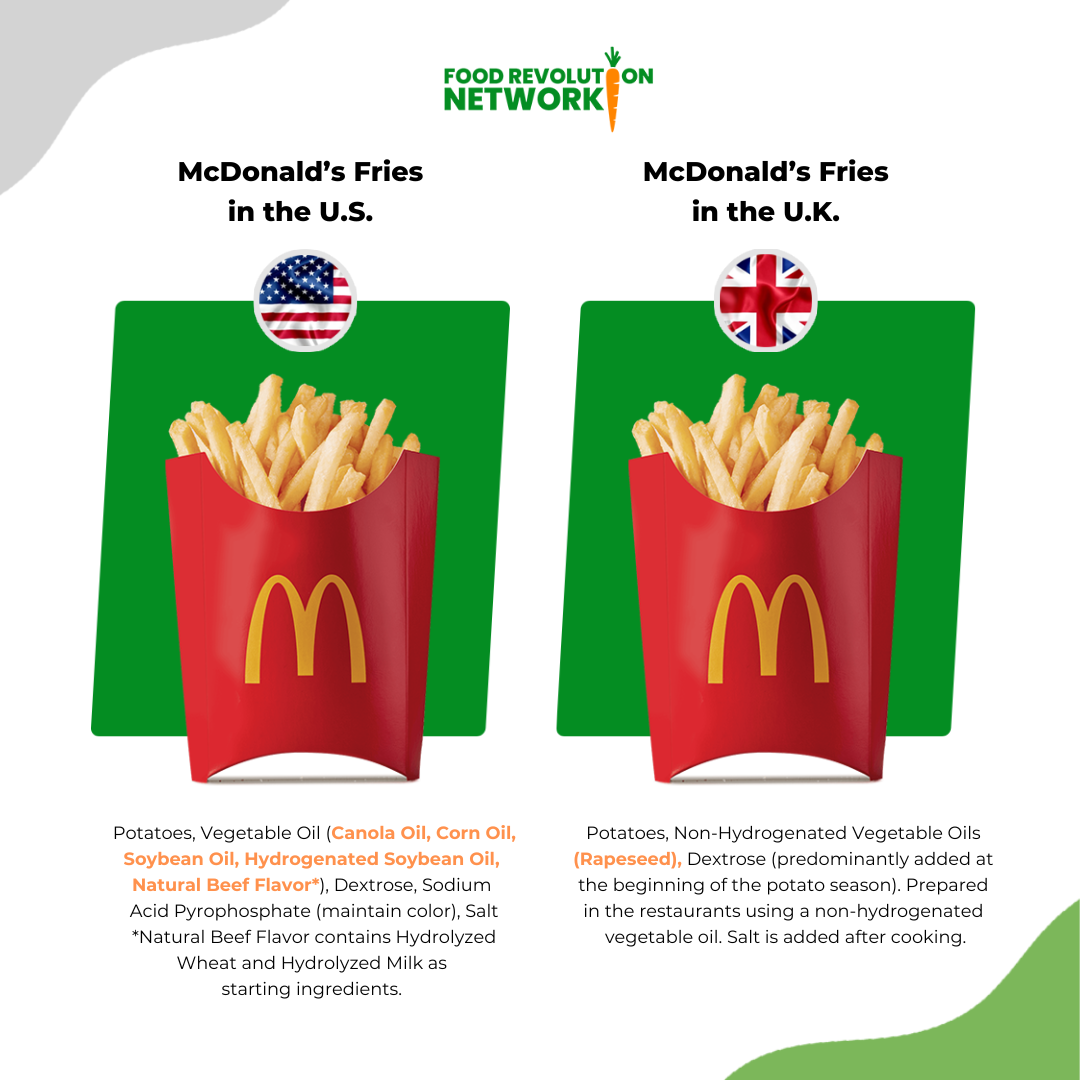
As much as we would like to believe that everything on grocery store shelves is safe to put in our bodies, the truth is sometimes different. The food supply in the US (and in many other nations, too) is full of chemical flavorings, additives, colorings, and other questionable ingredients.
But before we look at what foods you should stop eating, let’s explore why the US government lets this happen in the first place.
Generally Recognized As Safe
The answer lies in the FDA’s regulatory process — or lack thereof — for approving food additives. Through a system known as “Generally Recognized As Safe” (GRAS), food companies can use new chemicals and food additives without FDA oversight or approval. GRAS was first implemented in the 1950s, and little has changed in its requirements since then.
What are the requirements for a substance to be considered GRAS? So long as “the substance is generally recognized, among qualified experts, as having been adequately shown to be safe…,” new ingredients are fair game.
Any lawyer reading that quote is probably hyperventilating right now at the vagueness of the terminology. What makes someone a “qualified expert,” for example? And how do those experts “generally recognize” anything?
In practice, food and chemical companies often convene their own “expert” panels to decide whether an ingredient will pose harm. Many of these panels contain scientists with financial ties to all manner of industries — even the tobacco industry (“experts” who may have, at one time, recommended that cigarettes were safe!). Based on a panel’s recommendations, companies may decide to share the results of the panel’s assessment with the FDA. But by law, they’re not required to do so.
Most of the chemicals and additives on the GRAS list have never been tested on humans for long enough to produce meaningful data. Therefore, they can’t be guaranteed safe under the FDA’s requirements. So, it’s no surprise that some GRAS-approved substances have not withstood the test of time.
Take trans fats, for example. By the time the FDA started using the GRAS classification, they were grandfathered in as GRAS. They were marketed as cooking oils and added to foods like frozen pizza, peanut butter, packaged snack foods, and margarine. Unfortunately, we later learned that trans fats were causing upwards of 500,000 deaths per year from associated heart disease.
In 2015, the FDA finally decided that trans fats, or partially hydrogenated oils, were unsafe. It gave food manufacturers a few years to remove them from the food supply. Since the ban, many food companies have replaced trans fats with ingredients like palm oil, which has its own set of concerns.
The reason that many banned foods are still allowed in the US often comes down to money. Companies producing or using ingredients banned abroad may lobby to keep these substances on the market, arguing that restrictions would harm economic competitiveness or innovation. Additionally, these industries often resist stricter labeling laws that could inform consumers about potential risks, citing fears of decreased sales.
So, what can you, as a consumer, do? For one thing, be aware of this list of banned foods that are still in the US food supply.
11 Banned Foods That Are Still Widely Used in the US
Below are some of the most commonly used food ingredients and industry practices allowed in the US but banned or highly regulated elsewhere.
1. Bleached Flour
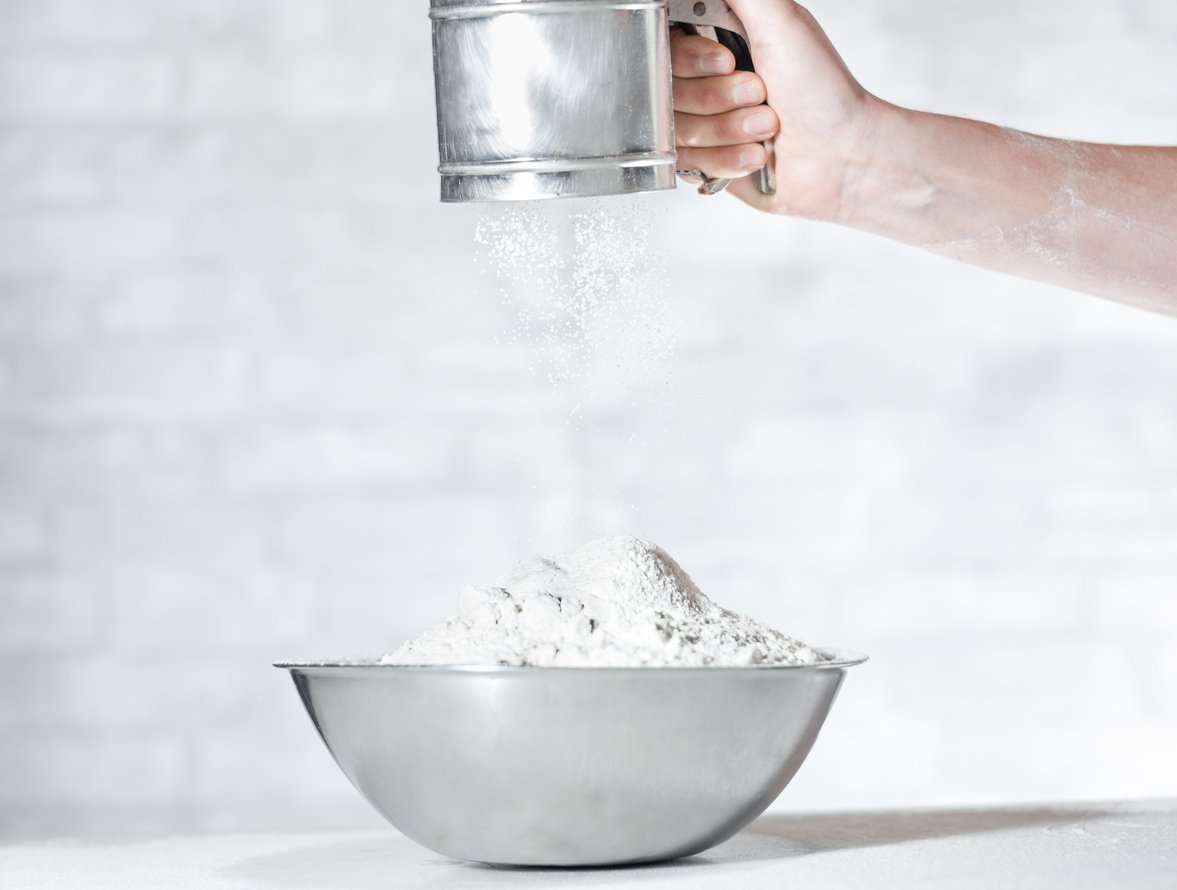
In the United States, bleached flour is widely used in baked goods such as breads, cakes, cookies, and pastries and sold directly to consumers for home baking. The bleaching process involves treating flour with chemicals like chlorine gas or benzoyl peroxide (which you may recognize from TV commercials for some over-the-counter acne medications — yum!) to achieve a whiter color, softer texture, and finer grain. While this process may enhance the flour’s look and feel, health concerns have been raised due to potential chemical residues and byproducts remaining in the food.
Cake flour, in particular, may retain chemicals due to the bleaching process. One study found trace amounts of alloxan in 24% of chlorine-bleached flour samples tested. Alloxan is used in laboratory settings to induce diabetes in animal models for research. (Our view on animals in medical research is here.) Studies show it can damage the pancreas’ insulin-producing beta cells. The concern is that chronic exposure, even at low levels, might contribute to insulin resistance or impact pancreatic function, particularly in people with existing metabolic dysfunction.
Yet despite the damage they may pose, these chemical bleaching agents are on the GRAS list in the US. In contrast, the EU banned chemical bleaching agents, including chlorine, bromates, and peroxides, in the 1990s. Similarly, the United Kingdom and China prohibit benzoyl peroxide and other chemical whiteners in food products.
For more on flours, including plenty of non-bleached flours, check out our article, Is Flour Healthy? Sifting Through 24 of the Most Popular Types of Flour.
2. Dough Conditioners

Some of the chemicals used to bleach flour are also dough conditioners. Potassium bromate and azodicarbonamide are often used to improve the strength and texture of bread dough used in white breads, rolls, and “egg breads.” However, they may also pose a serious health risk.
Potassium bromate is classified by the International Agency for Research on Cancer (IARC) as a category 2B carcinogen, meaning it’s “possibly carcinogenic to humans.” (Their report cites studies showing carcinogenicity in rats, mice, and hamsters.) Exposure to dough conditioners like azodicarbonamide may also cause respiratory disorders like asthma and other breathing difficulties.
Based on this evidence, potassium bromate is banned in China, India, and Brazil, among other countries. Azodicarbonamide is banned in Australia and Europe. Recently, a few US states have also taken action to protect their citizens from these chemicals. In 2023, California became the first US state to ban potassium bromate (along with brominated vegetable oil (BVO), propylparaben and red dye no. 3 taking effect in 2027). The New York State Legislature is actively considering the “Food Safety and Chemical Disclosure Act” (S.1239C / A.1556C), which aims to ban potassium bromate along with other additives from food products sold in the state.
3. Propylparaben
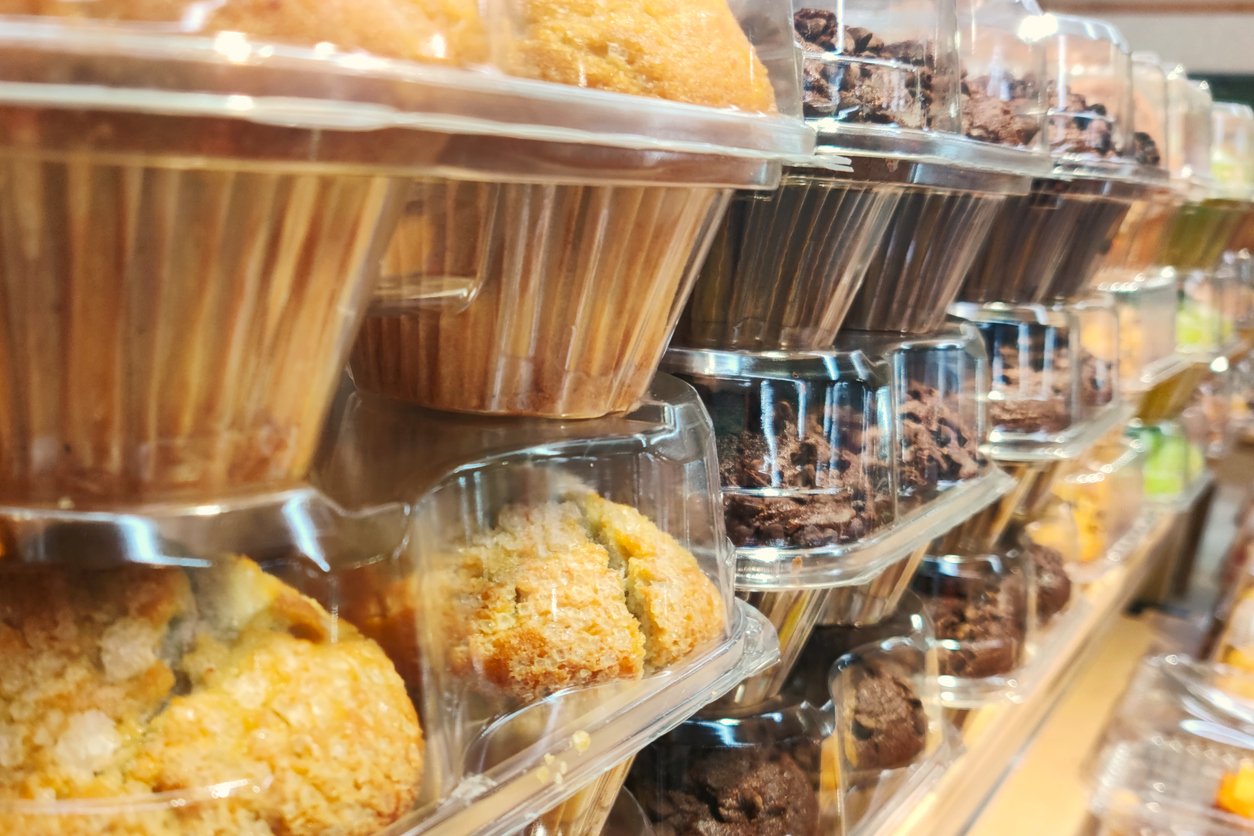
In the United States, propylparaben is used as a preservative in a variety of packaged and processed foods to prevent spoilage. It’s also used as a stabilizer in water-based cosmetics, although the use of parabens in personal care products has recently been restricted in the US and EU.
Animal studies have shown that propylparaben may affect male sex hormones. In a 2002 study, researchers found that it significantly lowered sperm counts in rats. Cornell University research indicated that exposure to parabens may also be linked to breast cancer.
Environmental Working Group senior scientist Johanna Congleton, PhD, reports, “It is of great concern to us that the use of an endocrine-disrupting chemical in our food is considered safe by our own government… Studies show that chemicals that disrupt hormone signaling can lead to developmental and reproductive problems.”
In 2006, the European Food Safety Authority banned the use of propylparaben in food and limited its use in cosmetic products. Although it’s on the FDA’s GRAS list, propylparaben is another food additive that California banned starting in January 2027.
4. BHA and BHT
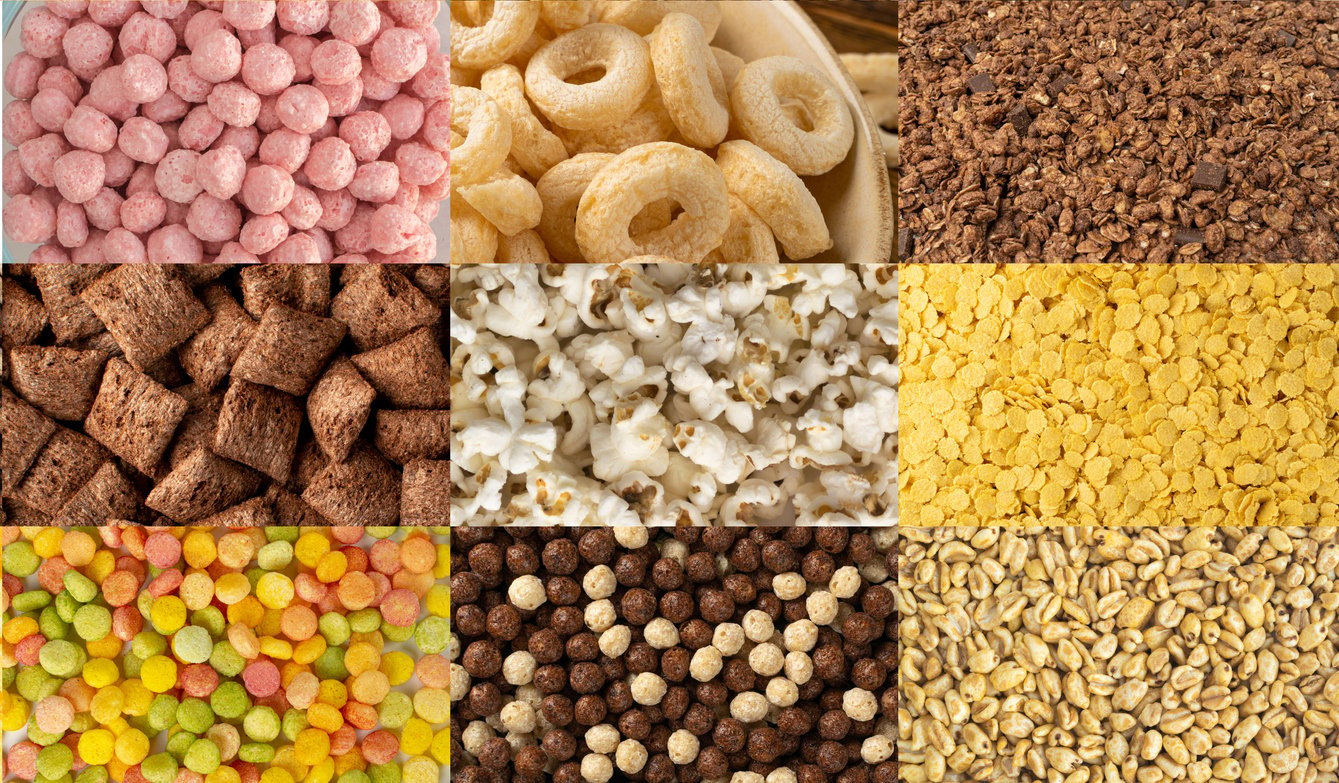
Butylated hydroxyanisole (BHA) and butylated hydroxytoluene (BHT) are popular artificial antioxidants used to preserve dry mixes, cereals, dehydrated potato products, and dry pet foods to increase their shelf life. They’re also found in product packaging, where they can leach into food.
BHA and BHT are endocrine disruptors — meaning that they can alter the normal function of your hormones, especially thyroid hormones, and lead to disease. The IARC also lists BHA as a class 2B carcinogen — “possibly carcinogenic to humans.”
Most countries have at least Allowed Daily Ingestion (ADI) levels for both BHA and BHT, which set amounts that are considered acceptable (although not necessarily safe) in food. The European Union also has a partial ban on the use of BHA and BHT in food and beverages for infants and young children.
5. Synthetic Food Dyes
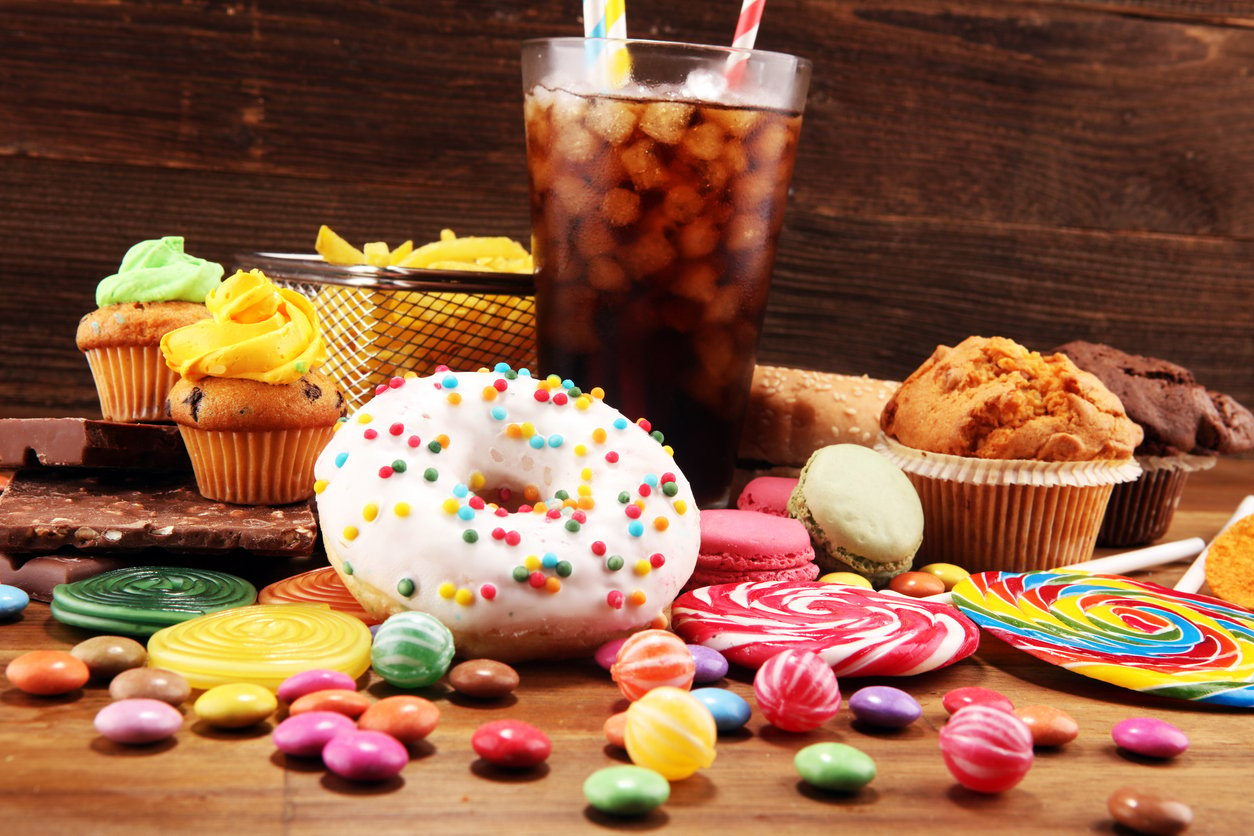
Synthetic food dyes, such as blue 2, yellow 5, and red 40, are used to enhance the coloring of certain foods and ingredients to make them more appealing to consumers. Some foods commonly containing food dyes include beverages (like juices, sports drinks, and sodas), candy, and glazes used in baked goods and sweets. They’re even used in seemingly trivial cases: making mustard more yellow, salmon more pink, and jarred pickles the perfect shade of yellow-green. (Again, the food industry maximizes profit rather than focuses on human well-being.) And don’t even get me started on maraschino cherries, which get their vibrant hue from a chemical derived from petroleum distillates or coal tar!
Research has linked the consumption of certain synthetic dyes to an increased risk for numerous health conditions, like kidney, brain, and bladder tumors and hyperactivity in children. Studies show the FDA’s acceptable daily intake for using these dyes in food and beverages may be outdated, leaving children at increased risk.
It’s not like all our food was gray or beige until someone invented artificial colors. US food manufacturers used natural food dyes until the mid-19th century when they turned to cheaper chemicals that turned food into even brighter colors.
Some synthetic food dyes are banned in the UK or highly regulated in Europe and Australia, where more natural coloring compounds are used. In most of the world, for example, the beverage Fanta contains actual fruit juice and is dyed naturally. However, American Fanta is colored with petroleum-derived artificial dyes like red 40 and yellow 6.
Promisingly, some US states are beginning to take matters into their own hands regarding food dyes. Once again, California is leading the charge, banning six synthetic food dyes from schools: red 40, yellow 5, yellow 6, blue 1, blue 2, and green 3. Numerous other states have legislation in the works as well. And in January 2025, the U.S. Food and Drug Administration (FDA) announced a ban on the use of Red Dye No. 3 in all foods and ingested drugs. Enforcement of this ban is scheduled to begin on January 15, 2027, for foods and January 18, 2028, for ingested drugs.
6. GMOs
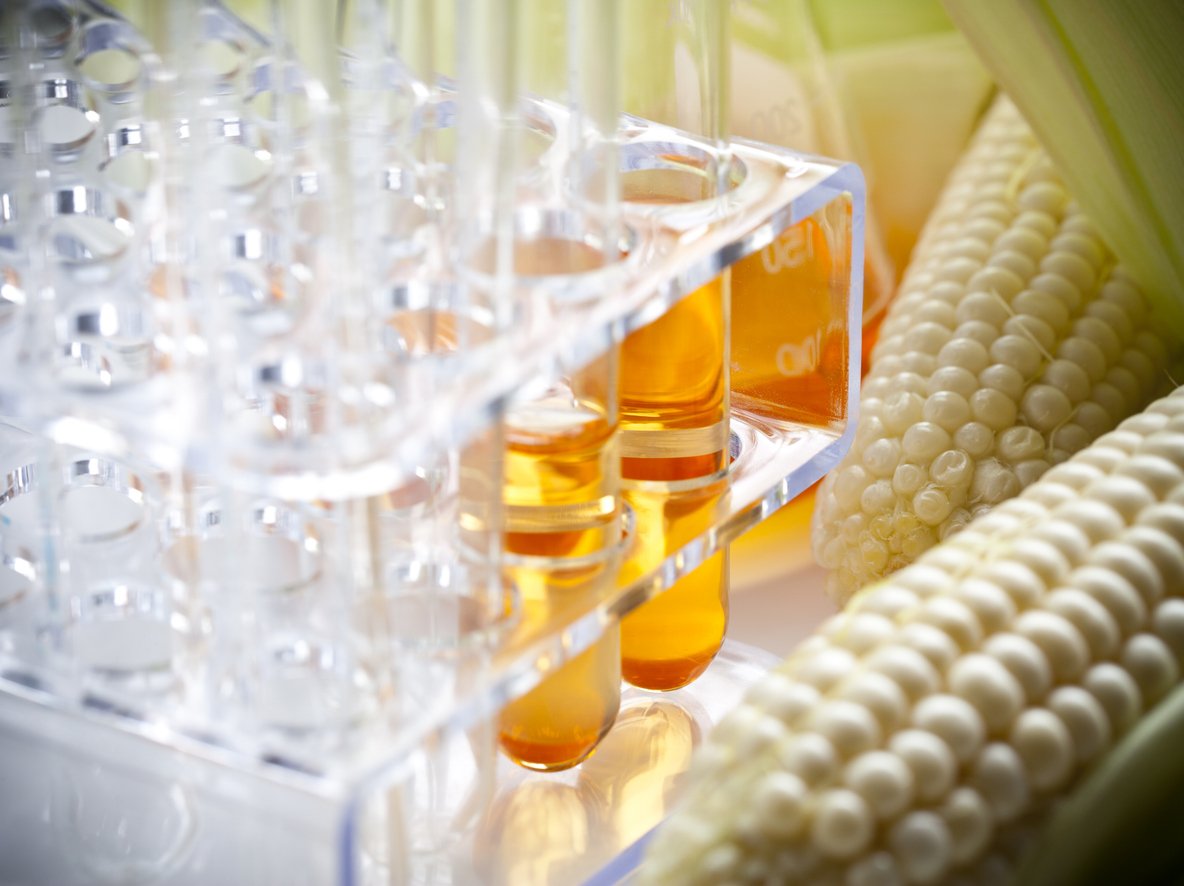
Genetically modified organisms (GMOs), also known as bioengineered (BE) foods, have been around since the 1980s to allegedly “improve beneficial characteristics in plants such as increased yield, drought tolerance or improved taste, for example.” But the reality has been much different for farmers — and for the health of farmworkers and consumers.
One of the most common herbicides used with GMOs is glyphosate, the primary active ingredient in the weed killer Roundup. Glyphosate exposure and consumption are linked to cancer. Several people won cases alleging that glyphosate caused their cancer. Bayer, the manufacturer of Roundup, is currently fighting cancer lawsuits in multiple states. California alone has over 4,400 Roundup cases.
GMO crops are widespread in the US — most US-produced soy, sugar beets, corn, canola, cotton, and alfalfa are GMO crops. But many European countries and others have banned or regulated them due to public safety concerns. The only GMO crop cultivated in the EU is a type of corn used for animal feed.
In total, 64 countries around the world require GMO labeling. And there are bans or major restrictions in place in Algeria, Austria, Belize, Bhutan, Bulgaria, Croatia, Denmark, Ecuador, France, Germany, Greece, Hungary, Italy, Kyrgyzstan, Latvia, Lithuania, Luxembourg, Madagascar, Malta, the Netherlands, Peru, Poland, Saudi Arabia, Slovenia, Turkey, and Venezuela.
For more in-depth information on GMOs and pesticides, read our article, What Are GMOs or Bioengineered Foods? And Are They Safe?
7. Antibiotics
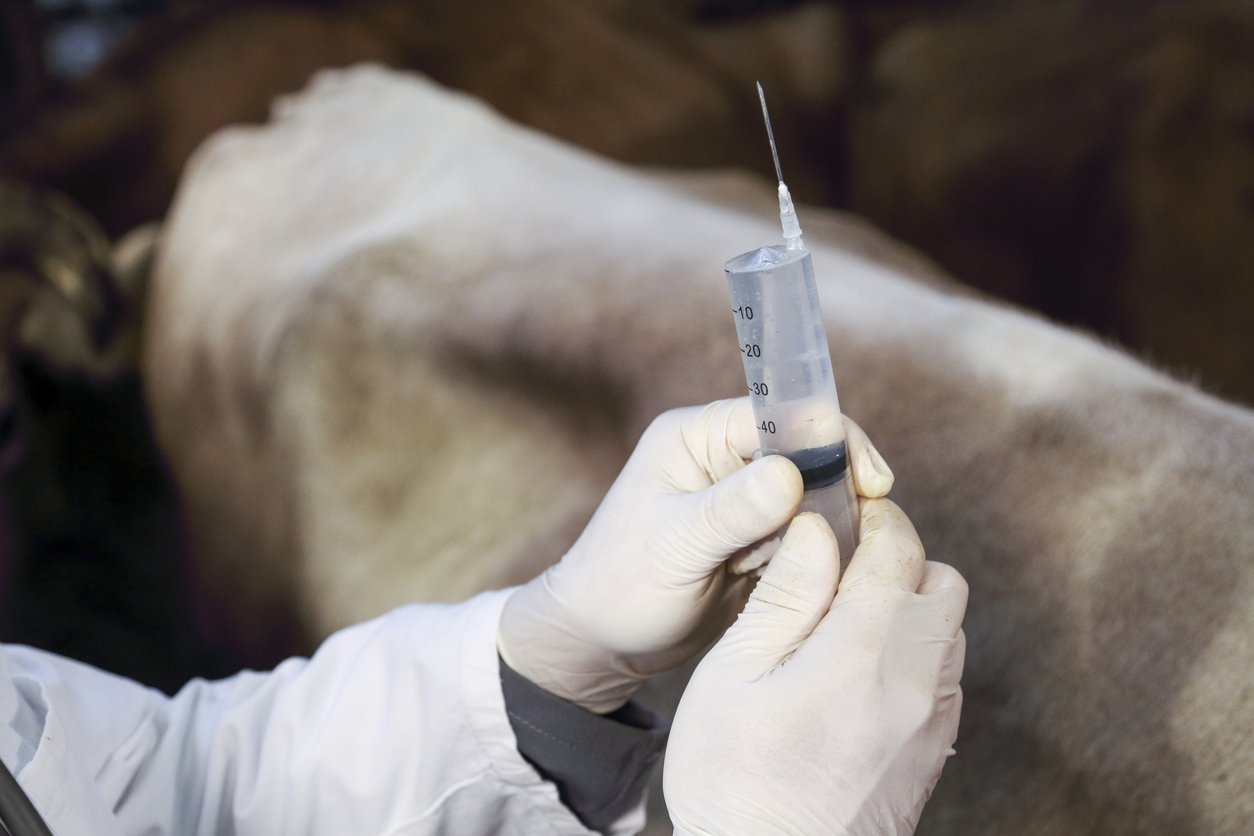
In the 1940s, it was discovered that antibiotics promoted growth in cattle and other meat-producing animals. Farmers included antibiotics in feed to increase yields for saleable meat. Although the USDA banned antibiotics as growth promoters in 2017, their usage has not been tracked. They are still allowed to prevent and treat illness in livestock.
Concentrated animal feeding operations (CAFOs) often give animals antibiotics to control the disease resulting from overpopulation and overcrowded environments. Antibiotics also function as growth promoters, which could be a bonus to encourage their use.
Ractopamine is an antibiotic used in the US for pigs, cows, and turkeys. It has been banned in 122 countries, including Russia, mainland China, Taiwan, and many European states. In addition to promoting antibiotic resistance, it has been linked to reproductive and cardiovascular damage in humans, as well as chromosomal and behavioral changes.
The EU, Mexico, and New Zealand also have blanket bans on antibiotic growth promoters (AGPs) for livestock.
Unfortunately, as with other drugs given to animals, these chemicals don’t just go away when the animal is slaughtered. Some of them make their way into the meat sold in stores. But getting a side of drugs along with your meat isn’t just a one-time problem. The overuse of antibiotics, whether prescribed directly by a doctor or ingested through our food supply, can have serious consequences. The more antibiotics are used when they’re not necessary, the more likely it can lead to the development of antibiotic-resistant superbugs.
For more on antibiotics in food, see our article, The Surprising Truth About Antibiotics, Factory Farms, and Food Recalls.
8. Herbicides, Insecticides, Fungicides
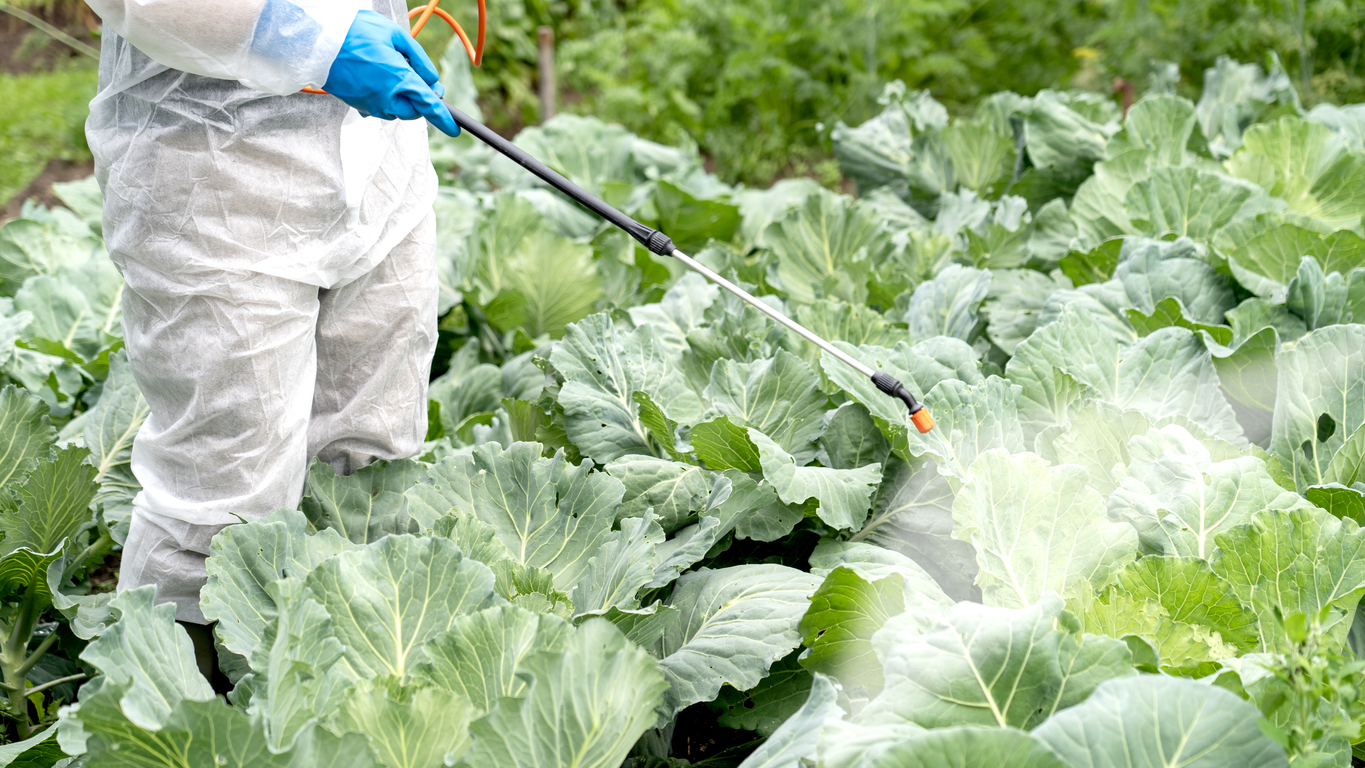
Herbicides, insecticides, and fungicides are widely used on crops in the US food system to keep them free of bugs and diseases. However, many pesticides harm people, insects, animals, and the environment.
Organophosphate pesticides, including chlorpyrifos, are particularly problematic. Initially developed by the Nazis for chemical warfare, these compounds were later adapted for agricultural use. Numerous studies over the years have connected prenatal exposure to chlorpyrifos and other organophosphates with lowered IQ and attention deficits in children.
Chlorpyrifos was recently banned in the EU and several other countries because of its neurotoxic effects, especially on children. And the US EPA banned it in 2021. However, a US federal court reversed the ban in 2023, and it is still widely used on US crops.
Fungicides like carbendazim are also banned in the EU and Australia but still permitted in the US, even though they are associated with reproductive toxicity and endocrine disruption.
The continued use of these chemicals in the US is largely due to lenient regulations, lobbying by the Big Ag industry, and a focus on cost-benefit analysis. While these substances may provide short-term benefits for farmers, their potential long-term health risks and environmental impacts highlight the need for stricter oversight and alternative farming practices.
For more on pesticides, check out these articles:
The US Still Uses Many Pesticides Banned in Other Countries
Pesticides in Food: What You Should Know and Why it Matters
EPA Identifies Three Common Pesticides Pushing Endangered Species to the Brink
9. Olestra
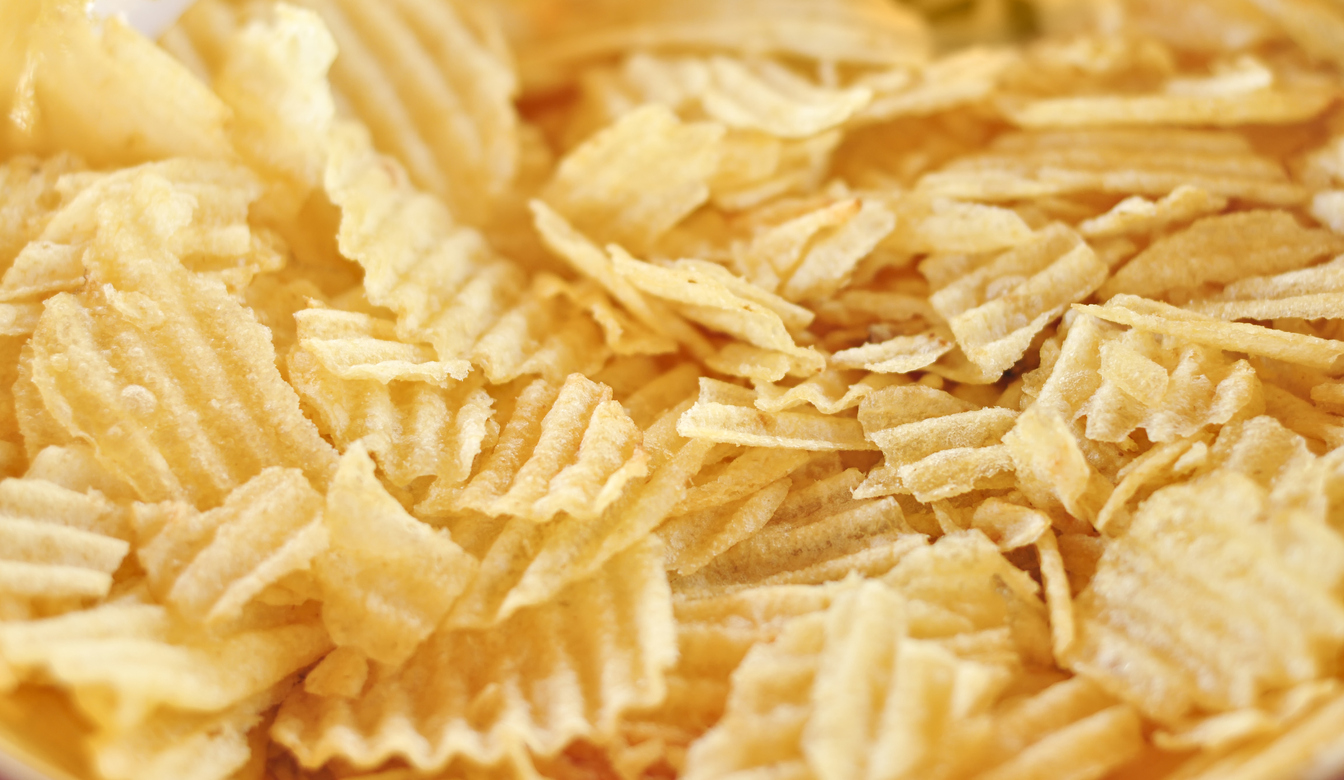
Olestra, or Olean, is a cholesterol-free fat substitute created by Procter & Gamble (P&G) in the 1990s. Its creation was to “address one of our nation’s most important health goals — our need to reduce dietary fat intake…” according to Suzette J. Middleton, P&G’s senior nutrition scientist at the time. It’s still used in snacks like fat-free potato chips, prepackaged popcorn, and french fries in the US.
But over the years, Olestra has been known to cause extremely unpleasant digestive reactions, like diarrhea and leaky bowels, because it’s not meant to be digestible. Consuming a lot of it can also lead to deficiencies in fat-soluble vitamins A, D, E, and K, as well as carotenoids.
Olestra’s use in food is banned in Canada and Europe.
10. Synthetic Hormones
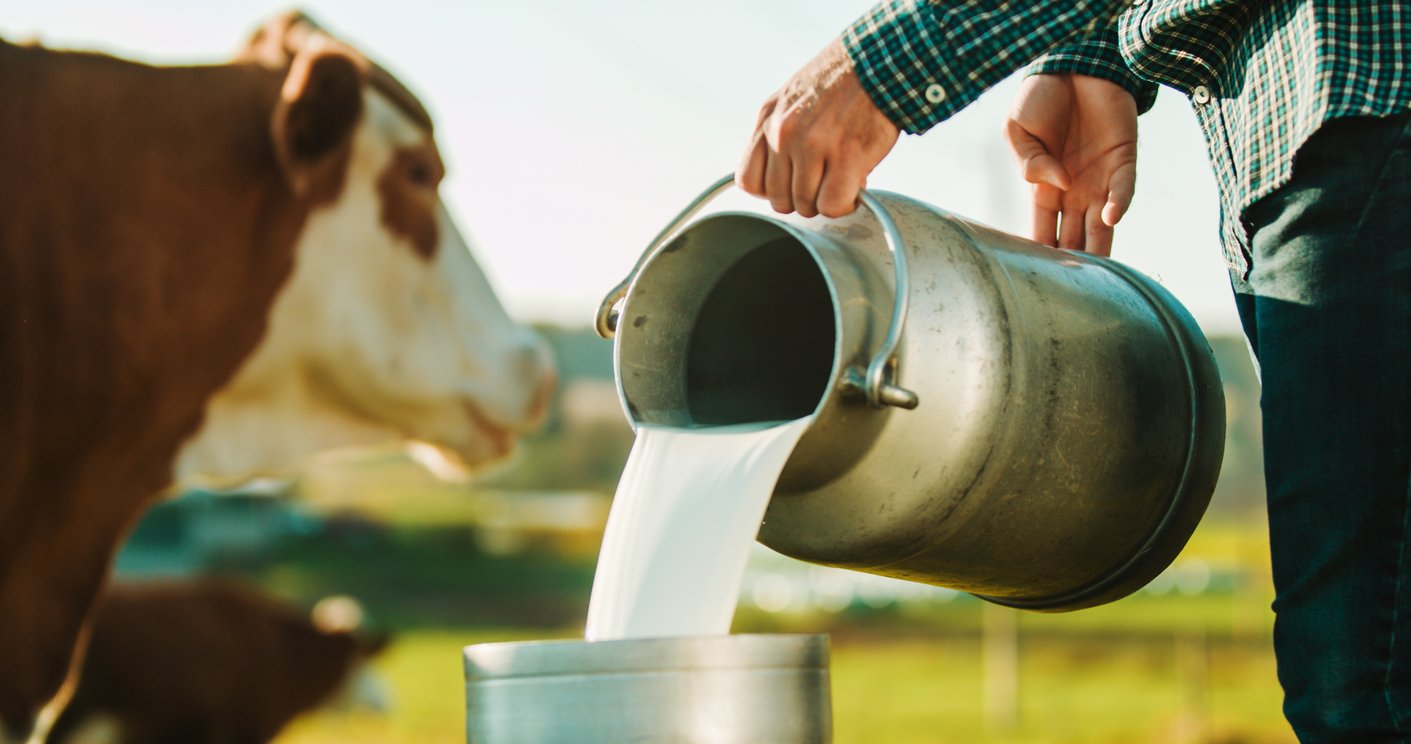
Synthetic hormones like rBGH and rBST are widely used in the US dairy industry. The primary reason for this is to increase milk production in dairy cows. However, rBGH and rBST increase IGF-1 levels in humans and may increase the risk of developing cancer. Additionally, cows treated with rBGH are more likely to develop mastitis, an udder infection requiring treatment with antibiotics.
The use of growth hormones in food is banned in Canada, the EU, and other countries.
11. PFAS
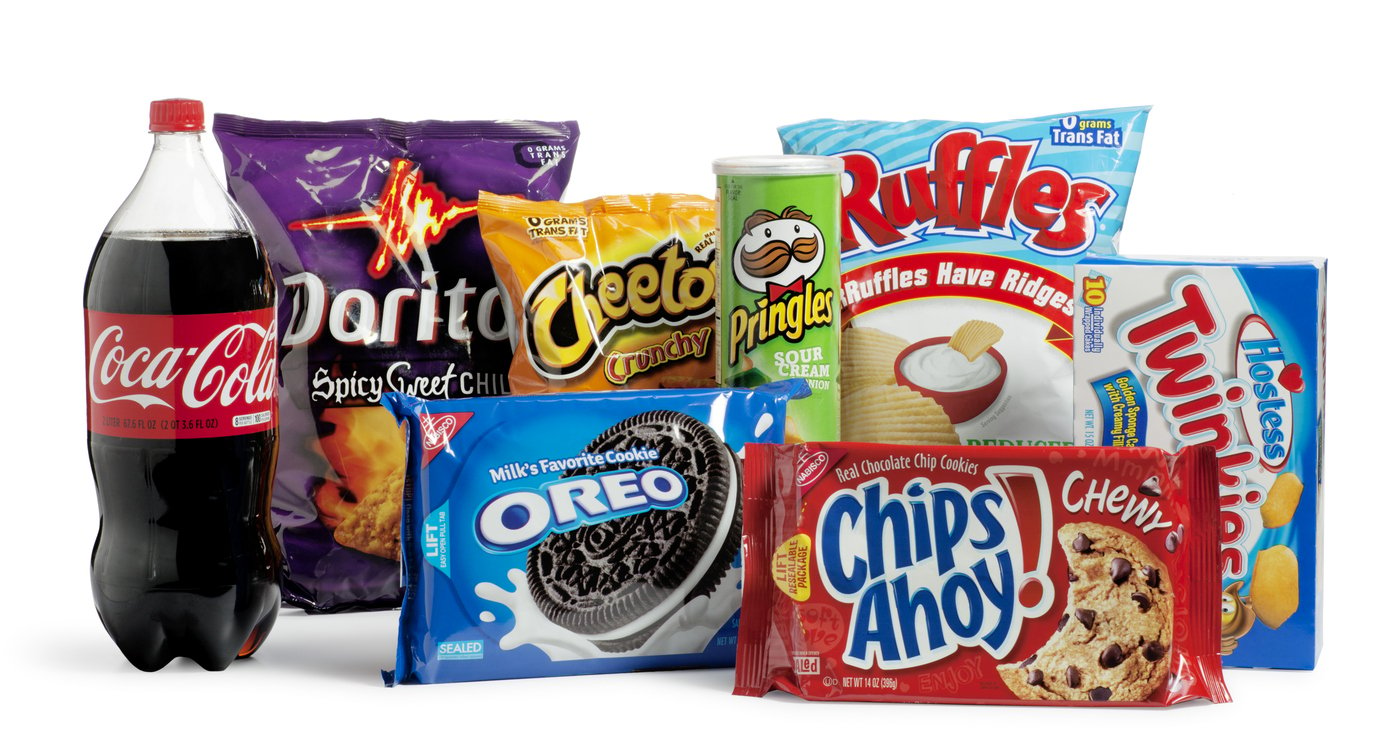
PFAS, or per- and polyfluoroalkyl substances, are synthetic chemicals with grease, water, and heat-resistant properties. PFAS have been used in fast-food wrappers, microwave popcorn bags, and takeout containers. But their resilience comes at a cost. PFAS are also known as “forever chemicals” because they persist in the environment (including drinking water) and human bodies. Ingestion of these chemicals is linked to severe health issues, including cancer, immune dysfunction, and developmental problems.
The European Union, Denmark, and Canada have banned or are phasing out PFAS, reflecting a more precautionary approach to public health. However, in February 2024, the FDA announced a major milestone — the voluntary phase-out of PFAS-based grease-proofing materials in food packaging. This move addresses a significant source of dietary exposure. While progress is being made, PFAS are still allowed in limited applications like cookware and food processing equipment.
The good news is that, as of 2024, at least 12 states, including California, New York, Connecticut, and Washington, have implemented statewide PFAS bans.
What You Can Do
The question you might be asking right now is, what can I do to protect myself? While you can’t immediately control what food companies are choosing to put in their products, you don’t have to eat them. And there are steps you can take to make healthier, safer food choices wherever you live.
Here are some tips on how to make sure the food you eat is as safe as possible:
- Read all food labels carefully. Familiarize yourself with the aforementioned banned ingredients and their alternative names, and look for them on packaged food labels. For advice on how to read food labels, check out this comprehensive guide.
- Eat minimally processed or, even better, whole, organic foods as much as possible. Fruits, vegetables, legumes, and grains won’t have the long list of ingredients that packaged and processed foods often do.
- Cook at home as much as you can. This way, you have more control over the food you’re eating. You’ll know what ingredients are being used and can decide to eat the foods that best align with your values. For cooking tips and tricks, check out our How to Cook series of videos.
- Support more local, regenerative, and organic farmers.
- Sign petitions. This is a great way to get involved in public policy, and you don’t even have to leave home. One of my favorite places to find and sign petitions is the Center for Food Safety website.
The good news is that you don’t have to wait for the US FDA or USDA to change policy to make informed choices about what you eat and feed to your family. Every bite you take is a chance to take a stand for a safer and healthier life.
Tell us in the comments:
- How concerned are you about dangerous, banned chemicals in the food supply?
- Do you think the US should adopt a more rigorous review process of chemicals in food?
- Are there any foods or ingredients you won’t eat because you’re concerned about their safety?
Featured Image: iStock.com/happy_lark



